Thonny 4 is dedicated to Ukraine fighting the Russian invasion.
🇺🇦 Please support Ukraine! 🇺🇦
|
|
Download version 4.1.7 for |
|
Windows
•
Official downloads for WindowsInstaller with 64-bit Python 3.10, requires 64-bit Windows 8.1 / 10 / 11 Installer with 32-bit Python 3.8, suitable for all Windows versions since 7 Portable variant with 64-bit Python 3.10 Portable variant with 32-bit Python 3.8 Re-using an existing Python installation (for advanced users) Mac
•
Official downloads for macOSInstaller with Python 3.10 (universal2) Re-using an existing Python installation (for advanced users) 3rd party distributions (may have older version)Downloading and launching the installer with Homebrew Linux
Official downloads for LinuxInstaller (installs private Python 3.10 on x86_64, uses existing python3 elsewhere) Re-using an existing Python installation (for advanced users) 3rd party distributions (may have older version)Flatpak Snap Debian, Raspbian, Ubuntu, Mint and others Fedora |
Thonny

Features
|
Easy to get started. Thonny comes with Python 3.10 built in, so just one simple installer is needed and you're ready to learn programming. (You can also use a separate Python installation, if necessary.) The initial user interface is stripped of all features that may distract beginners. | 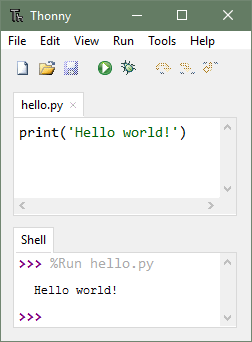 |
|
No-hassle variables. Once you're done with hello-worlds, select View → Variables and see how your programs and shell commands affect Python variables. |  |
|
Simple debugger. Just press Ctrl+F5 instead of F5 and you can run your programs step-by-step, no breakpoints needed. Press F6 for a big step and F7 for a small step. Steps follow program structure, not just code lines. | 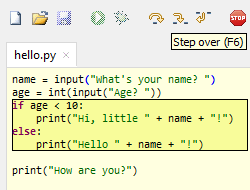 |
|
Step through expression evaluation. If you use small steps, then you can even see how Python evaluates your expressions. You can think of this light-blue box as a piece of paper where Python replaces subexpressions with their values, piece-by-piece. | 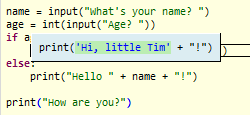 |
|
Faithful representation of function calls. Stepping into a function call opens a new window with separate local variables table and code pointer. Good understanding of how function calls work is especially important for understanding recursion. |  |
|
Highlights syntax errors. Unclosed quotes and parentheses are the most common beginners' syntax errors. Thonny's editor makes these easy to spot. | 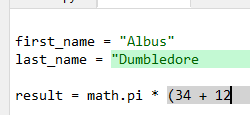 |
|
Explains scopes. Highlighting variable occurrences reminds you that the same name doesn't always mean the same variable and helps spotting typos. Local variables are visually distinguished from globals. | 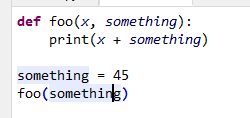 |
|
Mode for explaining references. Variables are initially presented according to simplified model (name → value) but you can switch to more realistic model (name → address/id → value). | 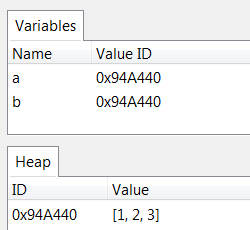 |
|
Code completion. Students can explore APIs with the help of code completion. |  |
|
Beginner friendly system shell. Select Tools → Open system shell to install extra packages or learn handling Python on command line. PATH and conflicts with other Python interpreters are taken care of by Thonny. | 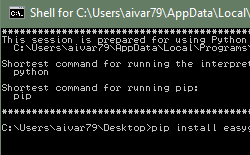 |
|
Simple and clean pip GUI. Select Tools → Manage packages for even easier installation of 3rd party packages. | 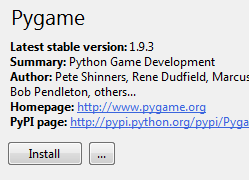 |
Demo
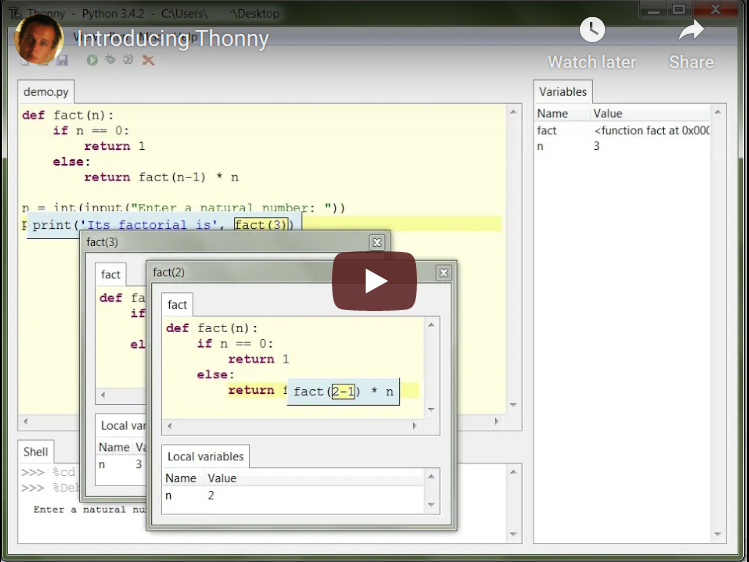
Credits
Thonny’s main author is Aivar Annamaa. All design decisions and opinions are his own and may not reflect the views of the supporters listed below.

From 2014 to 2018 the main development of Thonny took place in Institute of Computer Science of University of Tartu, Estonia.
Since September 2018 development of Thonny is partially supported by Cybernetica AS.

Development of several features in Thonny 3.0 and 3.3 was proposed and supported by Raspberry Pi Foundation.
We are also grateful for the help of several contributors from the open-source community around the world.
Instructions & downloads
Latest stable releases are linked in the download box at the top of this page. Older releases and prereleases can be found at https://github.com/thonny/thonny/releases
Plug-ins
Thonny has simple infrastructure for extensions.
These are some known Thonny plug-ins:
- thonny-gitonic adds a command for opening gitonic
thonny-black-format(abandoned)- thonny-black-formatter adds a command for formatting current file with Black
- thonny-ev3dev allows uploading code to EV3 (and much more)
- thonny-error-explainer extends Assistant with new error checkers
- thonny-lahendus allows loading exercises from lahendus.ut.ee and submitting solutions for automatic assessment.
- thonny-edison allows uploading Python code to Edison educational robot
- thonny-dracula adds Dracula syntax theme.
- thonny-onedark adds One Dark syntax theme.
- thonny-crosshair adds commands for invoking CrossHair analyzer.
- thonny-icontract-hypothesis adds commands for invoking icontract-hypothesis analyzer.
- thonny-py5mode adds py5 support for a Processing-like creative coding environment.
- thonny-flake adds warnings from flake8.
- thonny-autosave adds the option for auto-saving your script in every 10 seconds.